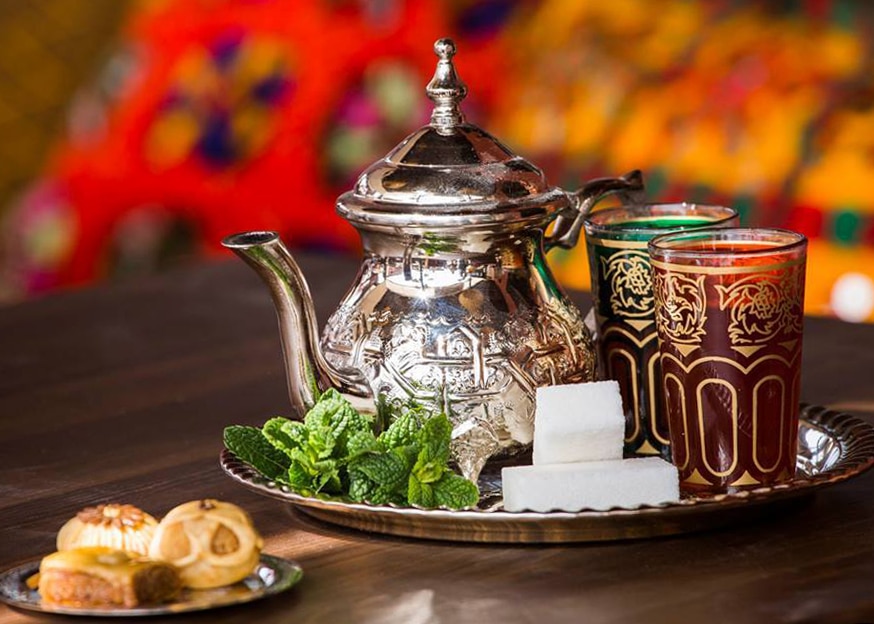
Moroccan Hospitality: What Makes It So Special?
Exploring the Heart of Warmth: Discover the Unique Traditions of Morocco's Welcoming Culture

The Essence of Moroccan Hospitality
Morocco is renowned for its warm and welcoming culture, where hospitality is not just a practice but a deeply ingrained tradition. From the bustling medinas to the serene desert camps, visitors are often struck by the genuine kindness and generosity of the Moroccan people. But what makes Moroccan hospitality so special? Let’s delve into the unique traditions and customs that define this heartwarming aspect of Moroccan life.
1. The Art of Welcoming Guests
In Morocco, welcoming guests is considered a sacred duty. The phrase "Lalla Fatima" (a traditional greeting for guests) reflects the respect and honor accorded to visitors. Whether you’re invited into a local home or greeted at a riad, you’ll be treated with utmost care and attention.
- Guests are often welcomed with a glass of mint tea, a symbol of hospitality.
- It’s customary to remove your shoes before entering a home as a sign of respect.
- Hosts go out of their way to ensure guests feel comfortable and valued.
2. The Ritual of Mint Tea
Mint tea, or "atai", is more than just a drink in Morocco—it’s a ritual that embodies hospitality. The preparation and serving of mint tea are steeped in tradition, often performed with great care and ceremony. Sharing tea is a way to connect, converse, and show generosity.
- Mint tea is typically made with green tea, fresh mint leaves, and sugar.
- The tea is poured from a height to create a frothy layer, a sign of skill and hospitality.
- Refusing a cup of tea is considered impolite, so always accept graciously.
3. Generosity in Sharing Meals
Moroccan cuisine is a cornerstone of hospitality, and sharing a meal is a deeply communal experience. Whether it’s a simple family dinner or an elaborate feast, hosts take pride in offering their best dishes to guests. Traditional meals like tagine, couscous, and pastilla are often served in large portions to ensure everyone is satisfied.
- Meals are typically eaten from a shared plate, symbolizing unity and togetherness.
- Guests are encouraged to eat heartily, as it’s a sign of appreciation.
- It’s common for hosts to offer second and third helpings, so pace yourself!
4. The Role of Riads and Guesthouses
Riads, traditional Moroccan homes with interior gardens, are a perfect example of Moroccan hospitality. Many riads have been converted into guesthouses, offering visitors an intimate and personalized experience. The staff often go above and beyond to make guests feel at home, from arranging tours to preparing homemade meals.
- Riads are designed to create a peaceful and welcoming atmosphere.
- Many riad owners treat guests like family, sharing stories and local insights.
- Staying in a riad allows you to experience Moroccan hospitality firsthand.
5. The Spirit of Giving
In Moroccan culture, generosity extends beyond material offerings. It’s about giving time, attention, and care to others. Whether it’s helping a lost traveler find their way or inviting a stranger to join a celebration, Moroccans often display a selfless spirit of giving.
- It’s common for locals to offer assistance without expecting anything in return.
- During religious festivals like Eid, families share food and gifts with neighbors and strangers alike.
- This spirit of giving fosters a sense of community and connection.
6. The Importance of Family and Community
Family and community are at the heart of Moroccan hospitality. Visitors are often welcomed into the fold, treated as honorary members of the family. This sense of belonging is what makes Moroccan hospitality so unique and memorable.
- Family gatherings are frequent and inclusive, often involving extended family and friends.
- Community events, such as weddings and festivals, are open to all, including visitors.
- This emphasis on togetherness creates a warm and inviting atmosphere.
7. The Influence of Islamic Values
Islamic teachings play a significant role in shaping Moroccan hospitality. Concepts like "Sadaqah" (charity) and "Ihsan" (excellence in behavior) emphasize kindness, generosity, and respect for others. These values are deeply embedded in Moroccan culture and are reflected in the way guests are treated.
- Hospitality is seen as a way to earn blessings and show gratitude.
- Guests are often referred to as "guests of God", highlighting their importance.
- These values create a culture of warmth and inclusivity.
Tips for Experiencing Moroccan Hospitality
To fully appreciate and reciprocate Moroccan hospitality, keep these tips in mind:
- Always greet people with a smile and a polite "Salam Alaikum" (peace be upon you).
- Accept offers of tea or food graciously, as it’s a sign of respect.
- Show appreciation by complimenting your host’s home or cooking.
- Learn a few basic phrases in Arabic or French to connect with locals.
Final Thoughts
Moroccan hospitality is more than just a cultural practice—it’s a way of life that reflects the warmth, generosity, and kindness of the Moroccan people. From the ritual of mint tea to the inclusive spirit of community, every aspect of Moroccan hospitality is designed to make visitors feel welcome and valued. So, the next time you find yourself in Morocco, embrace the opportunity to experience this unique and heartwarming tradition. You’ll leave with not just memories of stunning landscapes and vibrant markets, but also a deep appreciation for the people who make Morocco truly special.
